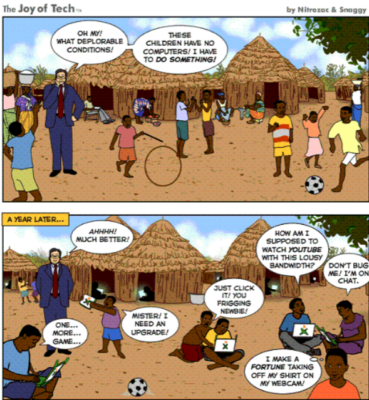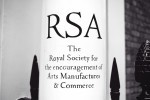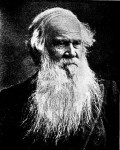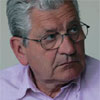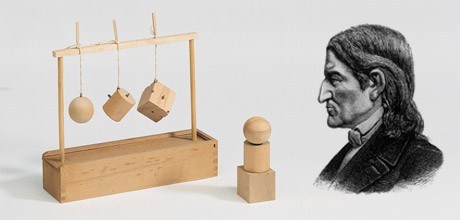
Programming Our Children : Architects of the Human Mind
Dark Arts in the Schools
20 June 2015
Why is it important we understand Froebel, his breakthrough, and the dark implementation of a shadow Froebel well after the man had passed?
First, United Learning Trust (ULT) is one of the largest controllers of the Academy agenda being implemented across Britain today, with ARK having introduced the Military Industrial Complex programme across the Academy agenda. ULT is a direct descendant of the Church of England, having one of the biggest shares in the Academy agenda it has the perfect opportunity to open a new indoctrination leaning to the corporate mentality.
Oasis is another big player in the Academy agenda, perhaps with the largest amount of schools under its wing as the Labour government left office, expanding exponentially under the coalition. The point of concern with Oasis comes in the form of Steve Chalk, who heads the Oasis Trust, he is very big on the Evangelical Alpha Course, which fits very nicely with many other operatives within this report, this agenda has its root in all things Evangelical groups.
In order to accomplish this militarisation of the education system they have to programme the children from a different foundation than children educated up to 1984. To have reached this far in the incorporation of education there is something different in the children of tomorrow, something different as a base line as to how they see a moral structure for their expression of life.
We are currently involved in wars, Afghanistan, Iraq, Syria, and Ukraine, but without straining ones mind we can see this war scenario is set to expand, Iran being the prime example and the fall out from the Ukrainian troubles has pitched NATO against Russia. As such the countries the elite want fighting the expanded war must be programmed to fight it, from childhood.
Enter the Academy agenda.
So heinous is the agenda suffered by our children in silence, we have made it our prime mission to inform as many people as possible the plight of their very own sons and daughters.
The following is aimed directly at teachers and all personnel operating or rather suffering, the current education system across Britain today.
Friedrich Wilhelm August Froebel
As with most great ideas, we find they emanate from the wealthier class. Friedrich Wilhelm August
Froeble is no exception to this rule, from Wikipedia :
Friedrich Wilhelm August Froebel (or Froebel) April 21, 1782, June 21, 1852), was a German pedagogue, a student of Pestalozzi who laid the foundation for modern education based on the recognition that children have unique needs and capabilities. He developed the concept of the kindergarten, and also coined the word now used in German and English.
Friedrich Froebel was born at Oberweibach in the Principality of Schwarzburg-Rudolstadt in Thuringia. His father who died in 1802, was the pastor of the orthodox Lutheran (alt-lutherisch) parish there.
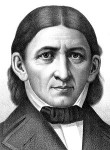 It would seem Froebel himself was moved by good intentions, but it is clear he was surrounded by folk with agendas, people with secret connections waiting in the wings for his idea to be accepted and implemented, and therefore funded by the taxpayer, in order they could have it serve the hidden agenda at minimal cost. One of the agendas under which his influencers were operating would be to program the children of the masses, incrementally, yet enough to enable the rules of commercial contract to fully implement within the whole system of Great Britain, and, without the people noticing the loss of accepted rights via the Constitution. But perhaps the most damning aspect of this program was to un-educate the people as to how the common laws acted as arbitrator for the good of justice, and that the statutes of corporatism act for corporate profit against all rights, yet still through the twentieth century as each decade moved on, more and more did the people hand all arbitration of human affairs over to the realm of profit. The Civil Courts and the magistrates shifted from law arbitration to judgements based on rules of contract, and one thing we all know of this system, you’re always gonna pay.
It would seem Froebel himself was moved by good intentions, but it is clear he was surrounded by folk with agendas, people with secret connections waiting in the wings for his idea to be accepted and implemented, and therefore funded by the taxpayer, in order they could have it serve the hidden agenda at minimal cost. One of the agendas under which his influencers were operating would be to program the children of the masses, incrementally, yet enough to enable the rules of commercial contract to fully implement within the whole system of Great Britain, and, without the people noticing the loss of accepted rights via the Constitution. But perhaps the most damning aspect of this program was to un-educate the people as to how the common laws acted as arbitrator for the good of justice, and that the statutes of corporatism act for corporate profit against all rights, yet still through the twentieth century as each decade moved on, more and more did the people hand all arbitration of human affairs over to the realm of profit. The Civil Courts and the magistrates shifted from law arbitration to judgements based on rules of contract, and one thing we all know of this system, you’re always gonna pay.
If you want people to identify their humanity as nothing but a legal fiction, a commercial debt account for serfdom, then from the perspective of those implementing the system, the people need to be able to read it.
Froebel indeed envisioned the perfect means to effecting children that they actually learn a programme by tapping into their natural state; all things play.
The lego dinosaur: https://www.flickr.com/photos/50295603@N02/48610164381/
Froebel Playground: https://www.youtube.com/watch?v=Hn4YkjRrwns
MIT, Froebel and Lego: https://web.media.mit.edu/~mres/papers/etrd/lifelongk.htm
Lego in the libraries:
London: https://www.westminster.gov.uk/event/lego-club-paddington-childrens-library-person
New York: https://www.nypl.org/events/programs/2022/09/01/lego-builders
Melbourne: https://www.theage.com.au/national/victoria/putting-together-a-summer-of-lego-at-the-state-library-brick-by-brick-20220106-p59m8k.html
Adelaide: https://www.experienceadelaide.com.au/whats-on/lego-club-at-city-library/
https://www.pinterest.com.au/pin/lego-club-at-city-library-2021-upnextadelaide-adelaideevents-whatsonadelaide-visitadelaide–805299977127201716/
Auckland: https://www.eventfinda.co.nz/2021/lego-in-the-library/auckland/takapuna
Lego library: https://www.pinterest.com.au/jamesbennettau/lego-library/
Building literacy and library attendance with lego: https://www.abc.net.au/news/2015-09-21/building-literacy-and-library-attendance-with-lego/6792154
Though we see in Froebel a system, what presents itself today as Froebel is not.
Today we find many branches relating to Froebel, but we have drawn it down to two major elements :
National Froebel Foundation
Froebel Educational Institute 1892
The chronology
The National Froebel Foundation Archive comprises a unique historical record of the Froebel movement in the UK. The Froebel Society [for the Promotion of the Kindergarten System] was founded in 1874 in order to provide courses of training for kindergarten teachers and a recognition and inspection facility for kindergartens. In 1887 The Society created a separate body, the National Froebel Union in order to validate examinations and set standards for the Froebel Teacher’s Certificate. In 1938 the two bodies were combined to form the National Froebel Foundation, which continued to perform some of the functions of its parent bodies.
In 1975 the NFF was formally dissolved, though a board of Trustees continues to ensure allocation of its residual assets in accordance with its charitable objectives. Little has been added to the Archive since then, as its primary value is in it’s early handwritten material, comprising mainly Minutes of meetings and ledgers recording students and their certification.
Source
The Royal Society for the Arts states on its own website that the National Froebel occupied the Royal Society for the Arts Tavern (18 Adam Street), from 1923 until 1939, conveniently as World War Two commenced as Britain declared war against Germany.
It also must be noted we are finding contradictory information from the various references relating to Froebel, a classic sign we are dealing with a twinned operation, something I will expand on later.
We also have a direct correlation with the use of Froebel and Theosophy, this presents itself in the fact Empress Friedrich, daughter of Queen Victoria, was patroness of the Froebel Educational Institute when it commenced in Britain in 1892, and continuing the idea Prussia is innocent, her hubby Friedrich III acts against Bismarck in his ideas of reuniting Germany by force, while his wife stands as patroness of what would programme the Third Reich.
We also find the sixth child of Queen Victoria heavily involved in all things education in her supporting role behind Emily Anne Eliza Shirreff who in 1871, with her sister, Mary Gurney, Lady Henrietta Maria Stanley of Alderley, founded the National Union for the Improvement of the Education of Women of all Classes, (also known as the Women’s Education Union). The Union also founded the Girls Public Day Company in 1872 , and continues to operate today as the Girls Day School Trust which is at the forefront of the independently lead arm of the Academy programme
At this point it is worth a look into the original funding of women’s liberation, of which education for women was an aspect, I can think of no better obliging fellow than to hear this story from Hollywood film director Aaron Russo, made before he died of cancer. Russo in an interview quotes his one time friend; Nick Rockefeller as he explained the fact his British Crown front family funded the liberation of women in order to tax the other half of the population and to ferment the destruction of the family unit by shifting the school in the position of parent on behalf of the state, exactly what we are witnessing today.
Even more interesting would be the fact that once Froebel had been tweaked in England, it then returned to Germany, which makes the following very important indeed :
Froebel & the Hitler Jugend : the Britishing of Froebel
By Peter Jackson and Sang-Wook Lee
Having worked long and hard on the life and work of Friedrich Froebel, we intended to refresh ourselves by revisiting educational controversies of the early twentieth century as recorded in Child Life, the organ of the Froebel Society from 1931-1939. The eye catching title of an article from 1933 drew us into the world of British froebelians and there, as we read on, we became aware of a process of transformation whereby Froebel’s quintessentially German idealist philosophy became British empiricist froebelian theory Froebel inspired the educational innovators of Third Reich, according to Dr Blochmann, a prominent teacher trainer in the early thirties. Writing in the 1933 edition of the English journal Child Life she claimed that his ideal of womanhood was about to be realised : the National Socialist Movement had repudiated what it called the intellectual woman, declaring itself in favour of the warm-hearted mother, practical in word and deed. In The Froebelian Outlook in Germany she spelt her message loud and clear to her British readers.
Source
Here is a thesis which gives insight to the strange uses of Froebel systems, please note this is for education purposes only :
Froebel and the Hitler Jugend; The Britishing of FroebelFroebel & the Hitler Jugend: the Britishing of Froebel
History
In 1851 the Froebel system was completely banned in Prussia, with this given the importance of its use to programme children, the whole system was moved to England; Tavistock Place to be precise. Here is where the original Froebel system would be dramatically tweaked in order they could re-programme the future generations. By September 1851 the first Kindergarten would open at 32 Tavistock Place Hampstead.
From this move would spawn Kindergartens across western Europe during the remaining decade, and into the Scandinavian countries, Australia, New Zealand, Canada and India, they also took root in America, Canada, Japan, Russia, Turkey, France and Switzerland for the remainder of the 19th century. In this regard from the point 1851 and it’s banning in Prussia (Illuminati base), Froebel would become the Tavistock programme, albeit Tavistock had not been announced to the world in its current form, what was presented as the study of the effects of shell shock as Tavistock was formed in the 20th century, was the implementation of the new mind control system now in the hands of those controlling the British Crown.
I do declare Tavistock and the elites it serves, to have been responsible for programming the Hitler Youth, and a similar programming is happening at your child’s school today. In banning the system, history would relieve Prussia of any and all culpability.
Based on my understanding of how scripts are implemented, I would say that via the Foundation the original Froebel system is espoused, whilst the Institute implements the shadow system, here is why I feel the two presented are the main controllers of this programming system, which today would seem to have been perfected and being implemented across the global education systems.
Here is further support of the fact we are indeed dealing with a shadow Froebel :
The pedagogy that made Froebel famous was encompassed in his Kindergarten, a set of strictly defined methods and activities for the education of young children, which he developed and refined in the second quarter of the nineteenth century. Froebel’s Kindergarten reached England in the mid-1850s, where it attracted a small but enthusiastic group of followers and practitioners. By 1900, Froebel’s followers in England had become awakened to movements in child study and psychology and Froebel’s prescriptions did not hold up to ensuing criticism.
In most histories of English education, the story of Froebelian education in England stops there, with the so-called death of Froebelian early childhood pedagogy and its replacement with an eclectic range of pedagogies and institutions based variously on the work of Sigmund and Anna Freud, Margaret McMillan, John Dewey, Susan Isaacs, Maria Montessori and others. This article picks up this dropped thread, examining the English neo-Froebelian movement after the death of Froebelian methods by the start of the twentieth century.
Based on analysis of the organisational records and publications of the Froebel Society, National Froebel Foundation, NSA and other professional groups connected with early childhood and progressive pedagogy, this article identifies several turning points in the institutional and ideological trajectory of neo-Froebelians in the most turbulent and decisive period of twentieth-century English pedagogical and policy debate. More specifically, this article shows that Stuart Hall’s theories of identity politics’ as well as Eric Hobsbawm’s and Terence Ranger’s concept of invented tradition can help us make sense of the apparently paradoxical persistence of Froebel discourse in interwar and 1940s progressive English educational discourse despite what appeared to be a complete disavowal of Friedrich Froebel, the man and his pedagogy on the part of those wielding his name.
Source
We have yet more evidence which ties the British Crown to the shadow Froebel in the following statement :
One of the visitors to the education exhibition held in St Martin’s Hall, London, in 1854 was the American educator Henry Barnard
The exhibition was opened by the Prince Consort and a demonstration of Froebel’s gifts and occupations was given by Heinrich Hoffman, another of Froebel’s former pupils. Hoffmann, who was head of the training institution in Hamburg, remained in England to assist in the training of teachers. In 1893 the Home and Colonial Society became the National Froebel Union.
From : Kindergarten architecture : space for the imagination, p. 49-51 by Mark Dudek
As an added insight into all things Froebel education, we find the Nursery schools are also of the Froebel system. What we find rather interesting is the fact many of the recently created children’s playgrounds, with their virtual reality landscape architecture, in fact I would go as far to say, bordering on the Tellytubby picturesque unnatural design, we can clearly see the difference between the old original Froebel playground design and those of recent times out of the shadow Froebel system, for that we need to look at Marjory Allen, Lady Allen of Hurtwood
From Wiki :
Quote
Marjory Allen, Baroness Allen of Hurtwood (10 May 1897 11 April 1976), ne Marjory Gill and known to her friends as Joan, was an English landscape architect and promoter of child welfare.
Marjory Gill was born in Bexleyheath, Kent. She was educated at Bedales School and University College, Reading, where she took a diploma course in horticulture. In 1921 she married Clifford Allen, a leading member of the Independent Labour Party who had been imprisoned as a conscientious objector in World War I. Marjory Allen worked as a landscape architect throughout the 1920s and 1930s and was elected the first fellow of the Institute of Landscape Architects in 1930.
Clifford Allen, who had been created 1st Baron Allen of Hurtwood in 1932, died in 1939, and Lady Allen threw herself into her work, also becoming interested in the welfare of children. Her campaigning for children in institutional care led to the passing of the Children’s Act 1948. She was chairman (1942-1948) and president (1948-1951) of the Nursery School Association of Great Britain, founder president of the World Organisation for Early Childhood Education, a member of the Central Advisory Council for Education (1945-1949), and chairman of the Advisory Council on Children’s Entertainment Films (1944-1950).
After World War II she served as a liaison officer with UNICEF in Europe and the Middle East. She campaigned for facilities for children growing up in the new high-rise developments in Britain’s cities and wrote a series of illustrated books on the subject of playgrounds, and at least one book on adventure playgrounds, spaces for free creativity by children, which helped the idea spread worldwide.
End of Quote
Source
Playgrounds and Lady Allen come from direct influence of Froebel :
Quote
As chair of the executive of the Nursery School association Marjorie begins to understand that there is not the infrastructure to support evacuated children and their mothers in places outside London. Long story very short, she organises and fundraises for demonstration prefab nurseries to be built which are then, within a year rolled out to 200 sites across England. They are filled with volunteers who have been through a training programme organised under her auspices, they are furnished and equipped with pieces made to an approved design out of bomb damaged wood, fabric etc by auxiliary firemen and others on standby. Prefab buildings cost £600 each to make were designed by nursery teachers working with an architect and took three days to build. They were run according to the principles of the NSA as influenced by Froebel that a child’s mental and emotional health was as important as its physical health many of these continues until well into the 1960s.
End of Quote
Source
Yet more insight into the recruiting of Lady Allen :
Quote
We join Lady Allen as she was travelling to Norway in a rickety old army Dakota on the 4th march 1946 for the playwork part of her life story.
On a fuelling stop in Copenhagen, the head of the Froebel Training School whisked her away to see Emdrup. From here on I will use her own words as they deserve sharing. Page 196 Memoirs of an Uneducated Lady
End of Quote
Source
Insight into the elite connections comes in the movements and acquaintances of her husband :
Quote
Clifford Allen was a pacifist and leader member of the Independent Labour Party. He shared a flat with his great friend Bertrand Russell and had won a scholarship from his home town in Wales to study at Cambridge with Robert Trevelyan, Herbert Morrisson , Fenner Brockway and Ramsey MacDonald, (might not have that quite right, it says here, but they were all mates). CA as he was known had been a pacifist during the 1914-1918 war (which I have not mentioned till now but which was of massive importance as a background t this story). He had been imprisoned three times for this, the last time he had served his time with hard labour, solitary confinement and a bread and water diet. He had contracted TB and lost the use of one lung. On a recent mission to Russia, where he had met with all the influential leaders and had an interview with Lenin, he had almost died as a result of this illness. This visit to Rome was somewhat of a recovery for him.
End of Quote
Source
Froebel and Save the Children
We have Froebel not only in the education of our children, but as the overlord for saving them. From this idea would spawn the many Crown controlled fronts involved in all things children.
Quote
Eglantyne Jebb was the founder of the Worldwide Save the Children Alliance. She not only created one of the world’s first International development agencies, but her work led directly to the UN’s Rights of the Child.
In many ways, she seems an unlikely Leader, as she was unsure of her own worth, often seemed influenced by others, and was continually searching to find herself. Yet, the impact she had, the values she espoused, and the way that she achieved what she did, speaks volumes about effective Leadership.
Teaching
In 1899, she started teaching primary students, in Marlborough, Wiltshire. This turned out to be a quite progressive school, using Froebel methods and advanced teaching methods. Eglantyne was rather taken aback that the children played war games, and was puzzled that they showed no apparent horror at the killing and fighting. The children were at that time knitting things for the soldiers of the Boer War. She always wanted to challenge the children, trying to get her pupils away from books, and to learn from observation and experience. Much to her surprise, her students loved her, as did her principals.
End of Quote
Source
We gain insight into a real shift in the educational paradigm with the following :
Quote
The Froebel Educational Institute was inaugurated at a meeting held in the Westminster Palace Hotel on the 25th October 1892, through the initiative of Mrs Julia Salis Schwabe and a group of liberal-minded men and women who formed the membership of the Froebel Society (to give it its full title, Froebel Society for the Promotion of the Kindergarten System) which had come into being in London in 1874. The Froebel Educational Institute (FEI) was inaugurated as a non-denominational college, and was intended to promote the kindergarten system in Britain. One of their most strongly held convictions was that the training of teachers should include practical experience, and consequently the FEI was provided from its inception with a co-educational Demonstration School with a Kindergarten. On 20th September 1894, the College formally opened in Talgarth Road, West Kensington, and Madame Emilie Michaelis was appointed as the first Principal. FEI’s first school, the fee-paying Colet Gardens Demonstration School, was opened in 1895, and was followed by the Challoner Street Practising School in 1899 (the latter survived until 1918, when its pupils were transferred to Colet Gardens). In 1896, the Michaelis Guild was formed as the alumni organisation for ex-Froebel College students.
In 1900, the FEI became the Incorporated Froebel Educational Institute, a registered company under the Board of Trade; the governing body was known as the Committee of Members. Esther Lawrence succeeded Emilie Michaelis as Principal in 1901: she remained in the post until 1931, overseeing the growth and development of FEI into a residential college based at Roehampton. Esther Lawrence was closely involved in the founding of two of the oldest nursery schools in London the Michaelis Free Kindergarten in Notting Dale (founded in 1908, later the Notting Hill Nursery School) and the Somers Town Nursery School near St Pancras (1910).
In 1921, the FEI purchased Grove House at Roehampton and moved the students there in 1922. Colet Gardens School remained in Talgarth Road and expanded into the old College accommodation. As the Roehampton site developed, there was a need for a school in the grounds, and Grove House School was opened in 1929 (it closed in 1939). Student numbers were growing so rapidly that the FEI purchased Templeton, a listed building in Priory Lane, Roehampton, in 1930.
A new Principal, Eglantyne Mary Jebb, continued the policy of expansion and growth, overseeing major extensions to the Grove House property designed by Verner Rees. During World War Two, the College was evacuated to Knebworth and Offley Place, Hertfordshire, while the Demonstration School was moved to Little Gaddesdon nearby. When the war ended, the Demonstration School moved to new premises at Ibstock Place in Roehampton. Offley Place was retained as a rural training centre until 1953. On the establishment of the University of London Institute of Education, FEI became one of its constituent colleges. Eglantyne Mary Jebb retired as Principal in 1955 and was succeeded by Molly Brearley, who oversaw some major changes, not least the requirement in 1960 that all teachers take a three-year training course.
End of Quote
Source
Did you note the mention of Ibstock Place School in the latter part of the above text? Ibstock brings into the frame a very sinister front for the Crown, and I might add a current coordinator of all things Princess Diana, enter the frame Michael Edward Stanley Gibbens. (Above)
Gibbens is currently on the Froebel Council, and he is the chair of the governing body at Ibstock School, Upon researching Gibbens there is so much we do not like the fruits of this man.
Here is the list of the Ibstock Place governing body, with a couple of extremely revealing biographies, one of which connects direct to Buckingham Palace :
Ibstock School Governing Body
Chairman
M. Gibbins, LVO FCA
Deputy Chairman
M. J. C., MA
Members
J. Allen
C. Edwards, FRICS
G. N., MA
Lady Harrop, MA
K. R. B. Jackson, MA FRSA
W. Macintyre, CB MA
L. Messer, LLB
S. F. R. O’Brien, FCA
S. A. Pandit, BSc MSc
Mrs A Sylvester-Johnson, BA PGCE
P. Walker
Miss S. Webster, BEd MA
Clerk to the Governing Body and Bursar
Lt Col R. Cartwright, LVO
IFEI Company Secretary Group Captain L. J. F. Barnes, MSc FRAeS
The first interesting biography and with royal connection comes in the form of Lt Col R. Cartwright, LVO.
Here is a sample with the whole document following after the second interesting biography :
THE LORD CHAMBERLAIN’S OFFICE
Buckingham Palace, London SW1A 1AA
Comptroller, Lt.-Col. Sir Malcolm Ross, KCVO, OBE
Assistant Comptroller, Lt.-Col. R. Cartwright
Secretary, J. Spencer, MVO
Marshal of the Diplomatic Corps, Vice-Adm. Sir James Weatherall, KBE
Vice-Marshal, Mrs K. Colvin
And
CENTRAL CHANCERY OF ORDERS OF KNIGHTHOOD
St James’s Palace, London SW1A 1BS
Secretary, Lt.-Col. R. Cartwright
Assistant Secretary, Miss R. Wells, MVO
The second man of interest comes with K. R. B. Jackson, MA FRSA.
lifeinthemix has found within all control aspects to education today to be found the RSA, the Crown operation to which Jackson is affiliated :
Jackson at Hurtwood House
Document for Cartwright :
Lt Col. R. Cart Wright at the Royal Household in Scotland
The Shadow Froebel and its Use Today

Friedrich Froebel (1782-1852) founded kindergartens and the use of Froebel’s Gifts, design toys for the development of children. Five were developed in his lifetime.
Froebel himself studied architecture and Frank Lloyd Wright, the American (non-conformist) architect attributes his skills to Froebel Gifts.
Froebel devised several categories to think about when looking at gifts. The first is the form of knowledge, focusing on the worldly knowledge that each gift stimulated.
For example, the geometric shapes in many of the gifts illustrate mathematical concepts, and children can use the Froebel Gifts to think about fractions, the relations between shapes, and so forth. In the forms of life category, children are encouraged to liken the objects in the Froebel Gifts to objects that they know; for example, a ball could be an orange, or a stack of blocks could become a tower.
Finally, children are also encouraged to think about forms of beauty, using the objects in the Froebel Gifts to create purely aesthetic and attractive displays. This encourages creativity in the users, as they think about symmetry, colour relationships, shapes, and so forth. Children can move through each Froebel Gift at their own pace, with a supervisor ensuring that the child gets the full benefit of the gift, exploring its full richness and complexity. (1)
Architect Norman Brosterman has made links between kindergarten and modern geometric abstract art and architecture. He says design toys..prefigure modern conceptions of geometric abstraction, and can be seen clearly in the later work of former kindergarteners Georges Braques, Piet Mondrian, Paul Klee, Le Corbusier, and many other familiar and important artists and architects. (2)
Frank Lloyd Wright states :
That early kindergarten experience with the straight line; the flat plane; the square; the triangle; the circle! These primary forms and figures were the secret of all effects which were ever got into the architecture of the world (3)
It has been suggested that the following also have a close connection to Froebel’s work : Wassily Kandinsky, Frank Lloyd Wright, Piet Mondrian, Georges Braque, Charles Jeanneret, Josef Albers. (4)
The Zome system of design toys has recently been described as a powerful design tool and educational toy for children and that it will change the architecture of your mind (5)
Some interesting comments have been made with respect to the utilisation of such gifts or toys in education and architecture:
An early Middlesex kindergarten was housed in the Iron Room School. and girls of from three to eight were thoroughly grounded in a perfectly symmetrical education, utilising the Froebelian apparatus and tasks designed to develop the child’s inherent powers and provided according to a careful system of the Gifts, the Games, the Occupations, and the Object Lessons (6) Terry Knight of the architecture department at the Massachusetts Institute of Technology gives the following analysis of Froebel’s Gifts :
The Symmetry Lessons of Froebel’s Buildings Blocks.
Architects in the United Kingdom, with respect to the Buildings Schools for the Future programme, (called BER, Building the Education Revolution, in Australia), acknowledge that the new school buildings programme is about human re-engineering; reframing the mind via the physical environment you place someone in.
In full support of all that you have read on this page, allow the current Trustees to cement their role in the destruction of British education :
THE INCORPORATED FROEBEL EDUCATIONAL INSTITUTE
Company Secretary Group Captain Laurence J. F. Barnes
Registered Office TEMPLETON, 118 Priory Lane London, SW15 5JW
REGISTERED CHARITY No. 312930 R.COMPANY LIMITED BY GUARANTEE REGISTERED IN LONDON No. 67941
At the Charity Commission website : Here
The Froebel Research Committee Here
Dr Peter Weston
Dr Peter Weston began teaching in 1962, becoming Head of English in a comprehensive school in Berkshire before joining Southlands College in 1970 as a lecturer. In 1980 he was appointed Head of English of the four Roehampton colleges, leading the second largest department in the institution. In 1986, he was appointed Dean of the Faculty of Arts & Humanities, and later made proposals which led to the adoption of a modular and semester-based curriculum in 1992-95, which continue at Roehampton to this day. Peter led the group which managed the application process which achieved taught and research degree awarding powers for Roehampton, granted in 1997. He retired in 2005 as Deputy Vice-Chancellor.
Source
In 1996 he was appointed Principal of Froebel College and University Pro-Rector, a joint post which held until December 2003. He published in 1998 a short biography of Froebel the first in English for many decades and in 2002 the first history of the College.
He retired in 2005 as Deputy Vice-Chancellor. He is currently Chair of the Froebel Research Committee, a trustee of the Froebel Council and also of the National Froebel Foundation, and President of the International Froebel Society.
Source
____________________________________________________________________________________________
Kevin Behony
Biography
Kevin J. Brehony is Froebel Professor of Early Childhood Studies, Director of the Early Childhood Research Centre and Programme Convenor of the MA in Social Research Methods. He is a Trustee of the National Froebel Foundation, a member of the Froebel Research Committee and he is President of the International Froebel Society Previously he was Senior Lecturer in Education at the University of Reading and prior to that he was Lecturer in Sociology of Education at Edge Hill College of Education. He also taught for the Open University and began his career in education in the West Midlands. Where he taught in three Primary Schools.
Source
____________________________________________________________________________________________
Rita Brown
____________________________________________________________________________________________
Professor Tina Bruce CBE MA Bed
Roehampton University Professor appointed CBE
Tina Bruce, Professor of Early Childhood Studies, has been appointed CBE in the New Year’s Honours List for her exceptional services to early childhood education in the UK. She is the only early childhood educator to have been appointed CBE for early years education. Professor Bruce’s highly distinguished contribution to the field includes writing and editing 29 education books, co-founding the Centre for Early Childhood Studies at Roehampton University and co-presenting the BBC Radio 4 series Tuning into Children.
Most notably, she was the coordinator of the Early Years Advisory Group to successive government ministers for children for 10 years, playing an instrumental role in laying the foundations of today’s approach to the early education experienced by children aged 0 to 5 in England.
Source
____________________________________________________________________________________________
Margaret Carter-Pegg NFF (National Froebel Foundation)
President, Association of Representatives of Old Pupils Societies (AROPS)
Source
____________________________________________________________________________________________
Maurice Craft PhD DLitt
Maurice Craft, Research Professor in Education, University of Greenwich, was formerly Dean of Education and Pro-Vice-Chancellor at Nottingham University, and has held senior academic posts in Australia and Hong Kong. Member of teacher education advisory groups for the UK Government Swann Committee, and Commission for Racial Equality, his publications include Ethnic Relations and Schooling (with Sally Tomlinson, 1995),Teacher Education in a Multi-Cultural Society (1986), and Education and Cultural Pluralism (1984).
Source
A Professor Maurice Craft from the London School of Economics :
Source
A Maurice Craft at Greenwich Teaching Primary Care Trust Board :
Source
____________________________________________________________________________________________
Dr Jim Docking
List of publications :
Managing Behaviour in the Primary School
New Labour’s Policies for Schools: Raising the Standard?
Special Educational Needs and the Education Reform Act
Exclusion from School: Provision for Disaffection at Key Stage 4
Education and Alienation in the Junior School.
Source
____________________________________________________________________________________________
Dr Peter Elfer
Research interests
For the last 12 years, I have been involved in research on children under three in nursery provision. Current research is a case study of six different kinds of nursery to investigate differing patterns of managing nursery provision for very young children. The aim is to see whether particular patterns of management are associated with particular outcomes for children.
I am particular interested in the use of psychoanalytic concepts and methods in this work. The study is therefore using a psychoanalytic approach to analysing organisations and the Tavistock (Tavistock and Portman NHS Trust) method of infant observation. Policy and practice development
Alongside the research, I have been involved in a number of policy and practice activities. These include :
a) the development, with Dorothy Selleck, of an Evaluation Schedule for evaluating practice with children under three in nurseries (now available on the NCB Early Childhood Unit website Everyday Stories); b) Development work on the DfES Framework Birth to Three Matters; c) Work on the implementation of the key-person approach in nurseries (please see book reference below); d) An evaluation with Masters Students at Roehampton University, of the Tavistock Video Observation Observed (please see forthcoming chapter for the Open University); ) Work with the Tavistock and Portman NHS Trust on the development of professional development materials on the social and emotional development of very young children.
Source
____________________________________________________________________________________________
David Hargreaves
David Hargreaves is Professor of Education, Froebel Research Fellow, and Director of the Centre for International Research on Creativity and Learning in Education (CIRCLE) in the School of Education, and has previously held posts in Schools of Psychology and Education at the Universities of Leicester, Durham and the Open University. He is also Visiting Professor of Research in Music Education at the University of Gothenburg, Sweden, and Visiting Professor at the Inter-University Institute of Macau.
Source
____________________________________________________________________________________________
Lady Margaret Joan Harrop MA
Source
____________________________________________________________________________________________
Mark Hunter, Principal, Annan Farm Small School
Source
____________________________________________________________________________________________
William Macintyre
Career
BP Co Ltd 1965-72, ECGD 1972-73; Dept of Energy (now part of DTI): Oil Div 1973-77, seconded ICFC 1977-79, asst sec Gas Div 1979-1983, DG Energy Efficiency Office 1983-87, under sec Electricity Div 1987-88, under sec Electricity Div B 1988-91, under sec Coal Div 1991-94, head of Telecommunications Div 1994-95, head of Communications and Information Industries Directorate 1996-2002; memb Radiocommunications Agency Steering Bd 1997-2002; exec vice-pres Chelgate Ltd, dir Templeton Estates; govr: Shene Sch 1982-86, East Sheen Primary Sch 1974-92, Froebel Coll 2001-07, Ibstock Place Sch (chm of govrs 2002-04); currently chm Incorporated Froebel Educnl Inst (IFEI, dep chm 2001-03), pro-chllr Roehampton Univ 2006- (memb Cncl 2000-06); warden parish of Mortlake with East Sheen 1991-95
Source
____________________________________________________________________________________________
Alan Montefiore
Alan Montefiore, Emeritus Fellow of Balliol College, Oxford; President of the Forum for European Philosophy; Joint President of the Wiener Library; former Chair of Council of the Froebel Educational Institute
At the London School of Economics :
Source
History of Froebel
Source
____________________________________________________________________________________________
Dr Neil Taylor, Centre for Research in Renaissance Studies
Dr Neil Taylor Director of Research, Roehampton University email: N.Taylor@roehampton.ac.uk
Current research concentrates on Shakespeare, primarily Hamlet, which he has edited with Ann Thompson (Arden 2006) and Shakespeare on film and television. He has published William Shakespeare: Hamlet (with Ann Thompson; Northcote House, 1996) and edited Henry IV Part Two (Ginn, 1972), Thomas Middleton: Five Plays (with Bryan Loughrey; Penguin, 1988), and Shakespeare’s Early Tragedies (with Bryan Loughrey; Macmillan, 1990). His articles and book chapters on Shakespeare and Middleton have been published in journals such as Shakespeare Quarterly, Shakespeare Survey, TEXT, and in books such as Shakespeare and the Moving Image (ed. Anthony Davies and Stanley Wells, CUP, 1994) and The Cambridge Companion to Shakespeare on Film (ed. Russell Jackson, Cambridge University Press, 2000).
Source
____________________________________________________________________________________________
Professor Graham Welch, at the Institute of Education
Professor Graham Welch
Qualifications and position :
PhD MA BEd(Hons) CertEd
Established Chair of Music Education; Deputy Dean, Faculty of Culture and Pedagogy
Faculty of Culture and Pedagogy
Department of Arts and Humanities
Summary :
Areas of interest include: musical development and education across the lifespan, including in mainstream and special schools and community settings; lifespan singing and vocal development; and music teacher education
Source
____________________________________________________________________________________________
Group Captain L J F Barnes FRAeS
Is this connected? LJF Barnes at VTS (Valuation Tribunal Service) Health and Safety Policy Statement :
Here
____________________________________________________________________________________________
Froebel Council
Source
Also listed are :
Dudley William Malcolm Couper MA
Mentioned in this document : Here
President of the The Old Cranleighan
Here
Lawyer, on wiki : Here
____________________________________________________________________________________________
John Luston Constantine BSc FCA
John is a retired Partner of Ernst & Young UK and was the Global Director of Professional Indemnity Insurance for Ernst & Young Global before he retired in June 2009. John is also involved with another charity, the Incorporated Froebel Educational Institute, as the Chairman of their Strategic Management Group.
Source
____________________________________________________________________________________________
Dr Bernadette Duffy MBE MA Bed
Bernadette originally trained as a teacher and has since worked in a wide range of settings over the last twenty years. She is currently Head of the Thomas Coram Early Childhood Centre in Camden which has been designated as a Children Centre by the Sure Start Unit at the Department for Education and Employment, and has been identified as a particularly successful school in the Chief Inspectors report for 2004.
The Centre offers fully integrated care and education for young children in partnership with their parents and local community and has a tradition of involvement in the arts, which stretches back to links with Handel and Hogarth. Bernadette is in demand as a speaker on a wide range of early years issues, particularly supporting creativity and imagination, and has addressed audiences from Scotland to Saint Lucia.
Bernadette has contributed to a number of publications and is the author of Supporting Creativity and Imagination in the Early Years published by the Open University Press. She w as part of the Qualification and Curriculum Authority [QCA] Foundation Stage working party which devised the guidance for the Foundation Stage and had particular input into the area of creative development. She w as also part of the working group that helped to create Birth to Three Matters published by the Sure Start Unit. Bernadette is Vice-Chair of the British Association for Early Childhood Education, a fellow of the Royal Society of Arts, a member of the DfES Early Education Advisory Group and the Primary Education Study Group.
Source
At the Department for Education :
Document showing how messy play can make an enormous contribution to young children’s cognitive and creative development. Messy play involves children using all their senses in the process of exploration, especially the sense of touch, offers the opportunity to mould and manipulate materials and not having a focus on making/producing something. It offers children opportunities personal, social and emotional development, communication, language and literacy, mathematical development, knowledge and understanding of the world, physical development and creative development.
Source
____________________________________________________________________________________________
Professor Jane Broadbent BA MSc PhD
Jane Broadbents research interests focus on the use of accounting in organisations, particularly those involved in the provision of public services. She is interested in the use of accounting as a tool of change particularly within organisations that are not usually oriented to financial issues. Her research, often undertaken in association with Professor Richard Laughlin, has generally looked at Schools, Health and Universities. She takes a contextual, critical, and interdisciplinary approach that develops the theoretical frameworks of Jurgen Habermas. Her research approach, middle range thinking, sees the need for reflexivity between the theory and the empirical situation studied. Theory is seen as providing a language with which to explore the empirical situation rather than as something to be tested and the understanding of the empirical situation may change the theory.
Source
____________________________________________________________________________________________
Guy Norman Fisher (Treasurer) MA FCA
____________________________________________________________________________________________
Michael Gibbins LVO FCA JP
Full Profile (Link missing will rectify shortly)
____________________________________________________________________________________________
Terry G Knight FRICS
A Terry Knight at the MIT (Massachusetts Institute of Technology) mentioned at : Here
with respect to Froebel at :
The symmetry lessons from Froebel building gifts (now removed)
A Terry Knight at Chartered Surveyors, Court Circular :
Here
____________________________________________________________________________________________
Mrs A Sylvester-Johnson BA PGCE
____________________________________________________________________________________________
Michael John Colin Watts MA FCA
Mike is Chair in Education in the School of Sport and Education at Brunel University, London. He is Subject Leader for Education responsible for developing teaching, research and consultancy education at Brunel, with a special emphasis on Professional and Pedagogic Education. His own areas of research interest lie in the learning and teaching of science, in schools and beyond.
After qualifying as a teacher at Doncaster College of Education he taught physics and science in Hackney, London and Kingston, Jamaica before entering educational research at University of Surrey, where he led a project investigating young people’s understanding of physics. He left Surrey having established a successful project and completed his doctorate, to join the Schools Council’s Secondary Science Curriculum Review as Project Officer. In 1986 Mike joined Roehampton University as lecturer and, in the following years moved to Senior Lecturer, Reader, Professor, Dean of School, Federal Professor and then Principal of Froebel College.
Source
____________________________________________________________________________________________
IBStock Place School
Source
____________________________________________________________________________________________
THE FROEBEL COUNCIL
Chairman W I Macintyre, CB MA
Professor T Bruce CBE MA BEd
Deputy Chairman D W M Couper, MA
Mrs M Carter-Pegg NFF (National Froebel Foundation)
J L Constantine, BSc FCA
Prof M Craft, PhD DLitt
Ms B Duffy MBE MA BEd
G N Fisher, MA FCA
M Gibbins, LVO FCA
Lady M Harrop, MA
T G Knight, FRICS
Mrs A Sylvester-Johnson, BA PGCE
M J C Watts, MA FCA
Dr P Weston, BA MA PhD
Prof J Broadbent, BA MSc PhD
Company Secretary Group Captain L J F Barnes MSc FRAeS
The school is no longer a demonstration school’, and, having moved in 1946 to its current location in Clarence Lane, Roehampton SW15, is a successful independent school taking pupils from 3-18 called Ibstock Place School. However, it still maintains a kindergarten section for the youngest children.
Source
____________________________________________________________________________________________
Froebel College mentioned at Panaz Healthcare Project
Here
Froebel a client of Marpaul
The Marpaul Group of Companies, established some 40 years ago has developed from a Mechanical Services company, engaged in Heating & Ventilation installations, to a totally integrated Building and Engineering Services Contracting organisation.
Source
____________________________________________________________________________________________
Notes
(1) http://www.wisegeek.com/what-are-froebel-gifts.htm
(2) http://www.froebelweb.org/weblinks.html
(3) http://froebelweb.tripod.com/web2000.html
(4) http://froebelweb.tripod.com/web2020.html
(5) http://www.ozpod.com/
(6) http://www.british-history.ac.uk/report.aspx?compid=22125
074. The Symmetry Lessons From Froebel Building Gifts
Further Study
The Colleges of the British and Foreign Society Formed the Working Class Wing of the Froebel Movement
The Symmetry Lessons From Froebel Building Gifts
In Profile : Wilhelm Wundt, Psychological Programming of Children
GEMS Global Education Management Systems and its links to the RSA Royal Society of Arts
Education
